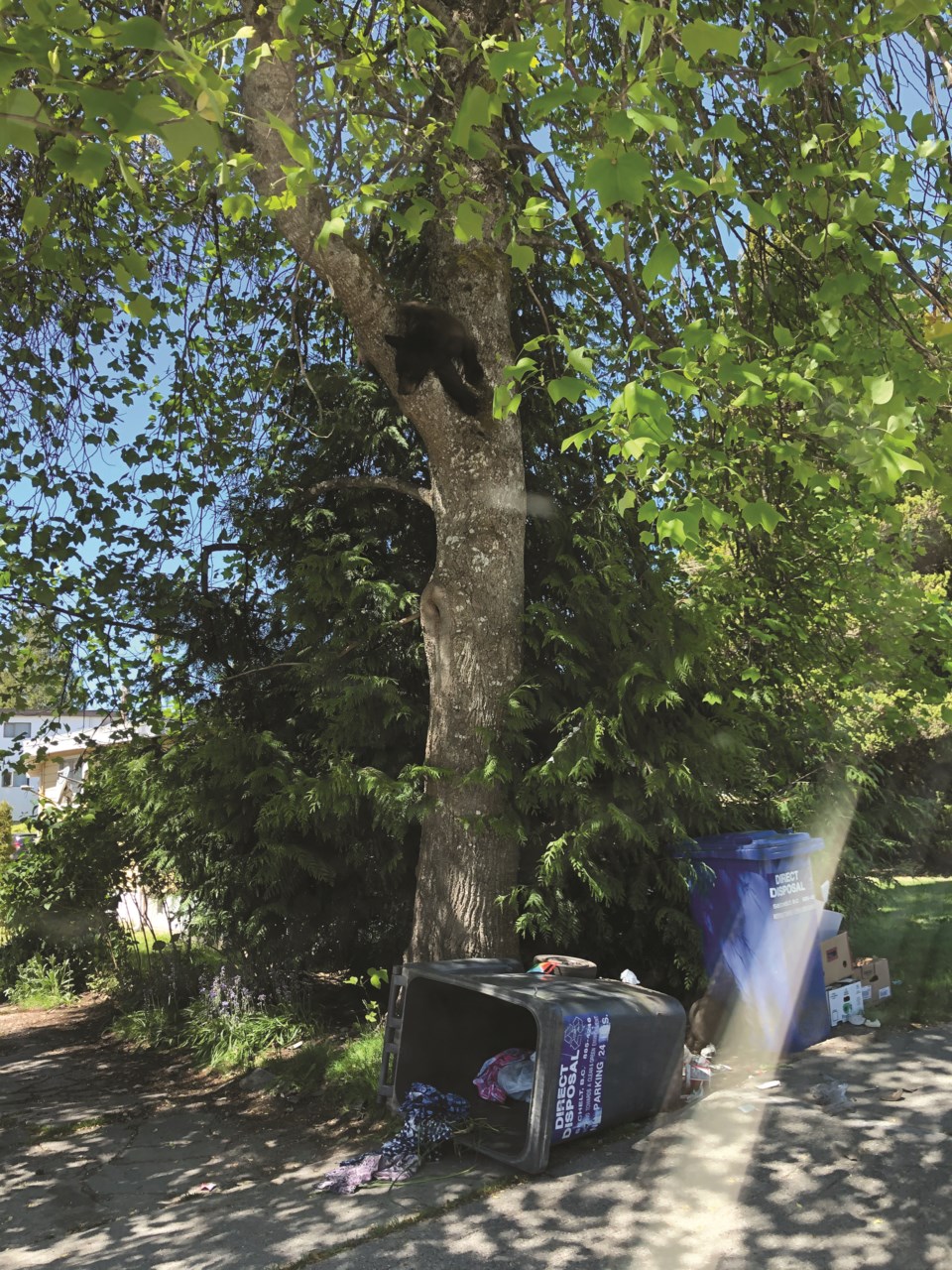As Sunshine Coast bears prepare for their winter slumber, the WildSafeBC program is going into hibernation until spring, too.
Wildlife activity on the Coast in 2021 was lower than previous years, a WildSafeBC annual report to the Sunshine Coast Regional District (SCRD) stated, but some areas still saw “hotspots” of activity for both WildSafeBC and the Conservation Officer Service (COS). Between Jan. 1 and Oct. 31, there were about 345 wildlife reports to COS and WildSafeBC’s wildlife alert reporting program. The majority of calls – 201 – were about black bears, although black bear reports were lower than average in the spring of 2021, “with a significantly smaller peak in activity than expected.” Wildlife reports also included 80 calls about deer, 21 regarding coyotes, 19 about cougars and 25 “other” wildlife reports.
In May, the first bear of the year to be euthanized had been found accessing garbage in the same area over a period of time and close to a school, and there were incidents of coyotes being fed on the Thormanby islands. Other reported activity included bobcats in Roberts Creek and black bear conflict throughout much of WildSafeBC’s program area.
The hot, dry summer and drought may have affected natural food sources, the report said, and black bear reports picked up in the late summer and fall.
“This could reflect the availability of natural food sources, as well as being affected by curbside collection disruptions ongoing intermittently since August,” the report stated in a Dec. 9 SCRD agenda.
There was also evidence that bear cubs had been fed on the Coast, Sgt. Dean Miller told Coast Reporter in an email on Nov. 28. Two sibling bear cubs of the year were sighted in Gibsons earlier in the year, and reported by residents to be orphaned or abandoned. The COS was able to confirm the bears were without a sow in the following months, when they displayed non-natural behaviours, surviving on food in residential neighbourhoods.
With the help of the provincial veterinarian and wildlife biologist team, the COS determined the course of action, and the cubs were taken into captivity.
“The captured high weight of these bears suggests that there was no end in human food for these bears available,” Miller said. “The COS in their enforcement capacity need to remind the public that bears are not pets and that feeding them is a violation of the Provincial Wildlife Act... It is not ideal for bears to be in our communities as they need to navigate many more risks than are in a natural setting. Please do not encourage bears to be in your neighborhood.”
Garbage and fruit trees were the most reported animal attractants, according to the WildSafeBC annual report to the SCRD. Other attractants included bird feeders, outdoor freezers, unsecured livestock and unlocked vehicles.
“Unsecured garbage remains a challenge in the community,” the report stated. “As collection and service levels vary along the Coast, messaging needs to focus on various ways to safely store waste throughout the week as well as on collection day. The introduction of curbside organics collection in the SCRD presents opportunities for waste management and waste reduction education.”
WildSafeBC coordinator Russell Dunsford wrapped up his season Nov. 3, after eight months of serving the Coast.
In that time, WildSafeBC presented information about reducing wildlife conflict to 441 students in seven schools on the Coast, and brought information to more than 915 homes by canvassing door-to-door and attending public events. Dunsford also spoke to 153 people in neighbourhoods with reports of black bears accessing garbage, homes or vehicles. Five new businesses signed on for the business pledge program.
Other future opportunities for education identified by WildSafeBC include at vacation rentals and bed and breakfasts, electric fence demonstrations, and engaging food banks, local breweries and non-profits.
Some bears may not hibernate at all on the Sunshine Coast, because of the mild climate and residents should continue to mitigate attractants throughout the winter months. Wildlife conflicts can be reported to the RAPP line at 1-877-952-7277. More information can be found at wildsafebc.ca.



